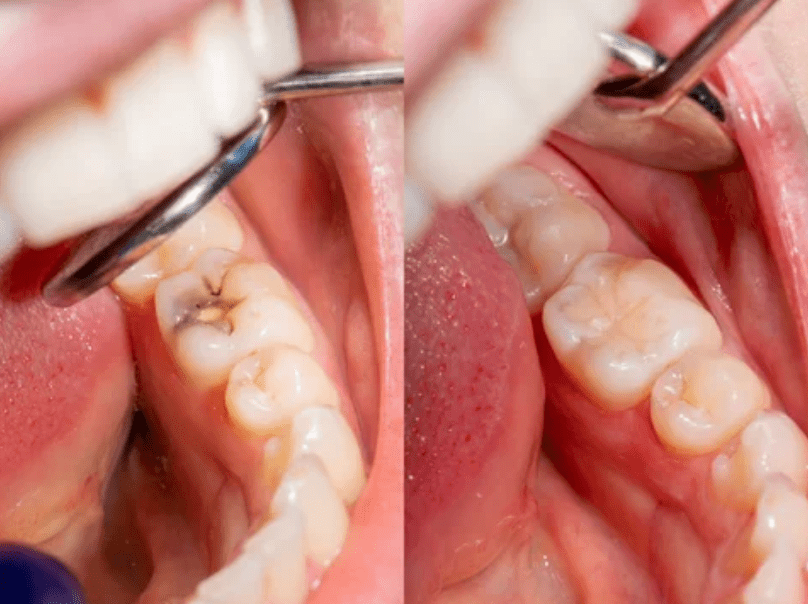You might not always feel them. But, cavities are stealthy troublemakers that can wreak havoc on your teeth and oral health. Without treatment, cavities will continue to damage your oral health. Cavities are tiny holes that form in your teeth due to tooth decay. Once they begin, they will continue to burrow into your teeth. Fortunately, you can avoid and prevent cavities before they do too much damage.

How Do Cavities Form?
When you consume sugary or starchy foods, the bacteria in your mouth have a feast. They eat these sugars and produce acids. These acids wear down your tooth enamel, creating small openings – the beginnings of cavities. This process erodes your tooth enamel.
The Silent Attack: How Cavities Damage Your Teeth
Cavities might seem small, but their impact can be significant. To start, cavities weaken the protective shield of your teeth. As the cavity progresses, the enamel surrounding it continues to erode. This weakens the structural integrity of the tooth. As a result, it makes your tooth more prone to further damage.
As the cavity deepens, it can reach the sensitive inner layers of your tooth, including the pulp and nerves. This can result in severe pain and discomfort, especially when you eat or drink. If left untreated, cavities can lead to excruciating toothaches.
If a cavity is left untreated for an extended period, it can progress to an abscess. This is a painful pocket of infection at the root of the tooth. Abscesses cause severe pain and can lead to more complicated dental issues.
In the worst-case scenario, cavities can lead to the loss of a tooth. If the damage from a cavity becomes too bad, your dentist may need to remove the affected tooth. This not only affects your appearance but also your ability to eat and speak properly.
Prevention is Key: How to Safeguard Your Smile
The good news is that preventing cavities is entirely within your control.
Firstly, you should establish a consistent oral hygiene routine. Therefore, you should brush your teeth at least twice a day and floss daily. This removes food particles and plaque. It deprives bacteria of their feast and prevents cavity formation.
You should also monitor your diet. This means you need to be mindful of the foods and drinks you consume. Limit sugary and acidic foods and beverages because they provide a feast for cavity-causing bacteria. Instead, look for tooth-friendly options like fruits, vegetables, and dairy products.
Fluoride strengthens enamel and helps repair early signs of tooth decay. Make sure your toothpaste contains fluoride. You may even discuss fluoride treatments with your dentist.
Visiting your dentist for check-ups and cleanings is crucial. They can detect early signs of cavities and address them before they turn into more serious problems. Therefore, you must make your regular dental appointments.
Cavities might be crafty, but armed with the right knowledge and habits, you can outsmart them.
